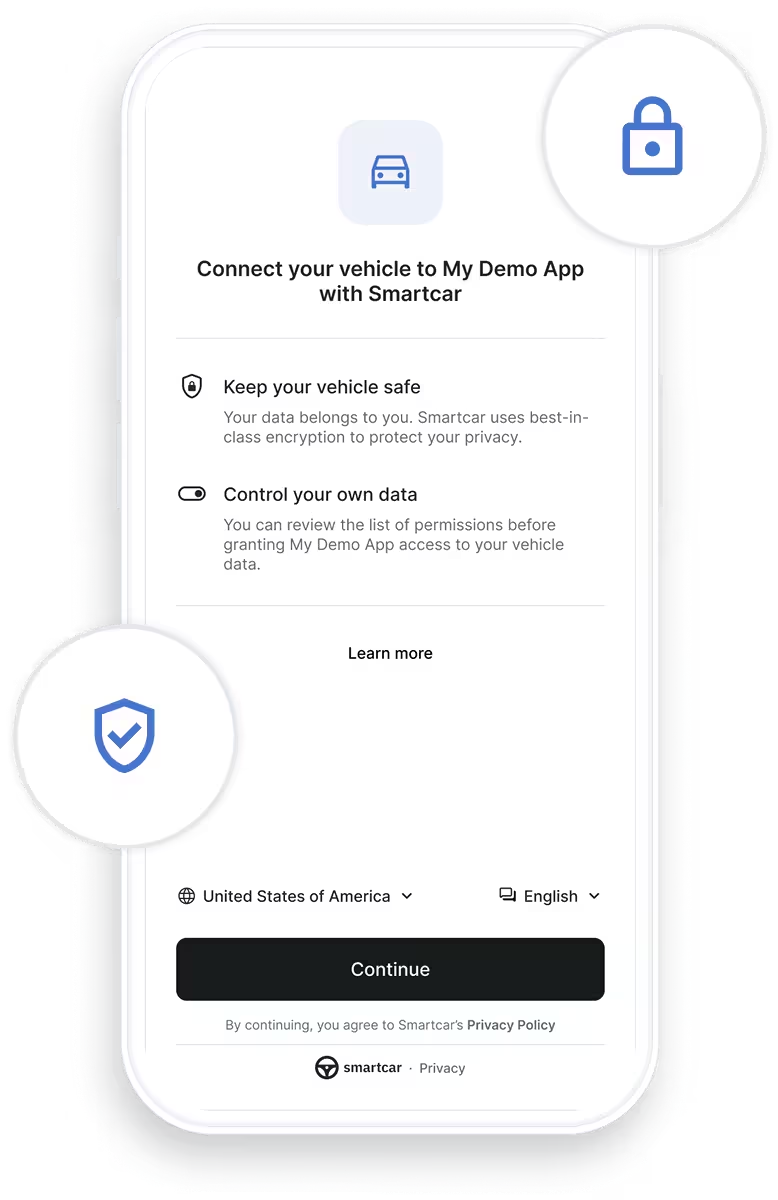Los datos más inteligentes del vehículo comienzan aquí
Smartcar ofrece información sobre los vehículos en tiempo real, precisa y segura, lo que elimina las encuestas y abre nuevas posibilidades para las aplicaciones de movilidad, las flotas, las plataformas de seguros y más.
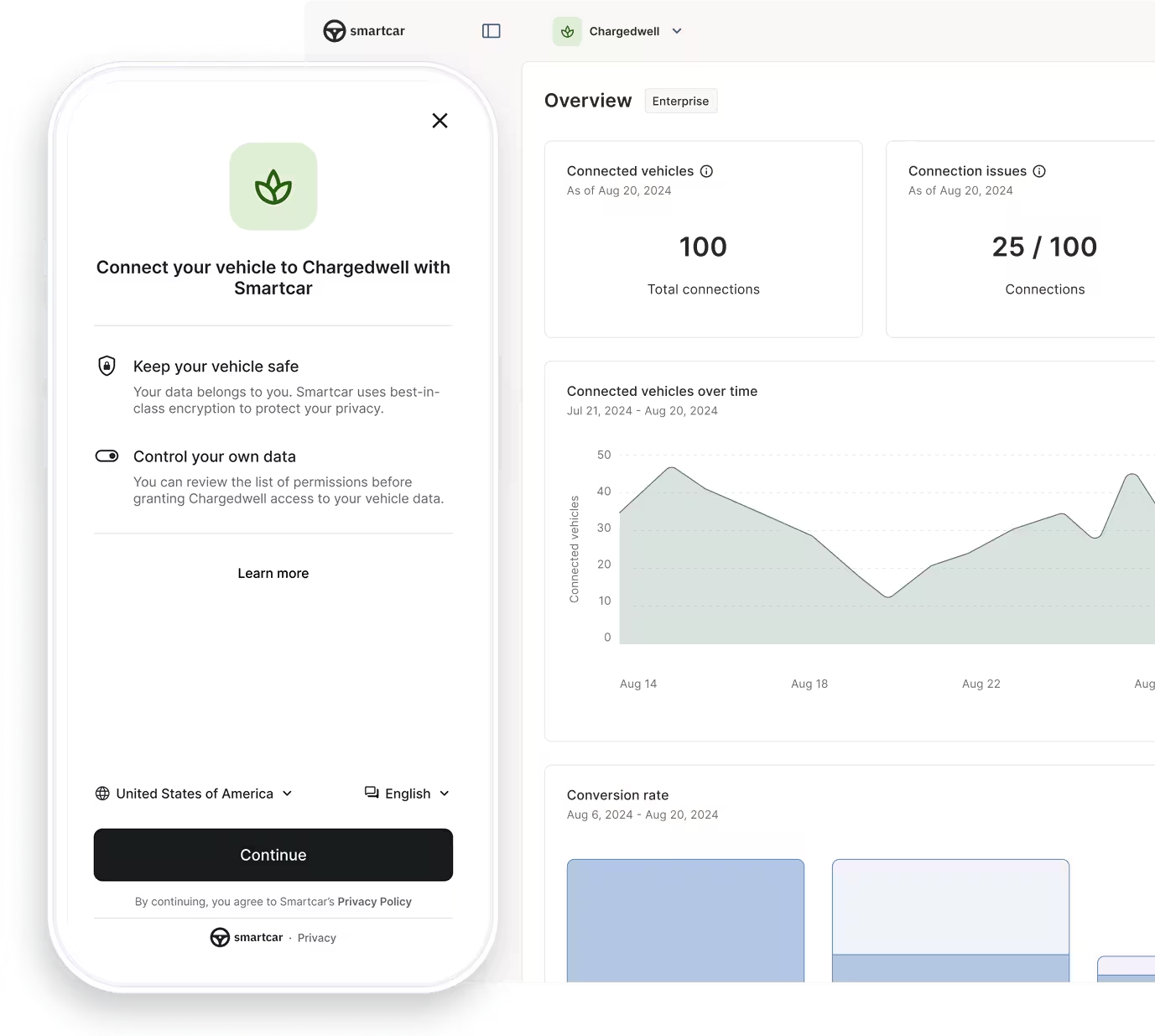
El nuevo estándar en datos de vehículos conectados
Proporcione información valiosa a su aplicación con precisión, velocidad y acceso directo a datos de nivel OEM. Todo ello con una única integración para más de 40 fabricantes de automóviles.
- Tenga siempre los datos más recientes
Los webhooks te actualizan al instante, sin necesidad de sondear. - Datos estandarizados
Obtenga los datos más completos y precisos, verificados en la fuente. - Los desarrolladores confían en nosotros
Fácil de integrar, flexible por diseño y diseñado para la escalabilidad. - Totalmente transparente
Permisos centrados en el cliente con flujos de consentimiento claros y basados en OAuth2.

How it works
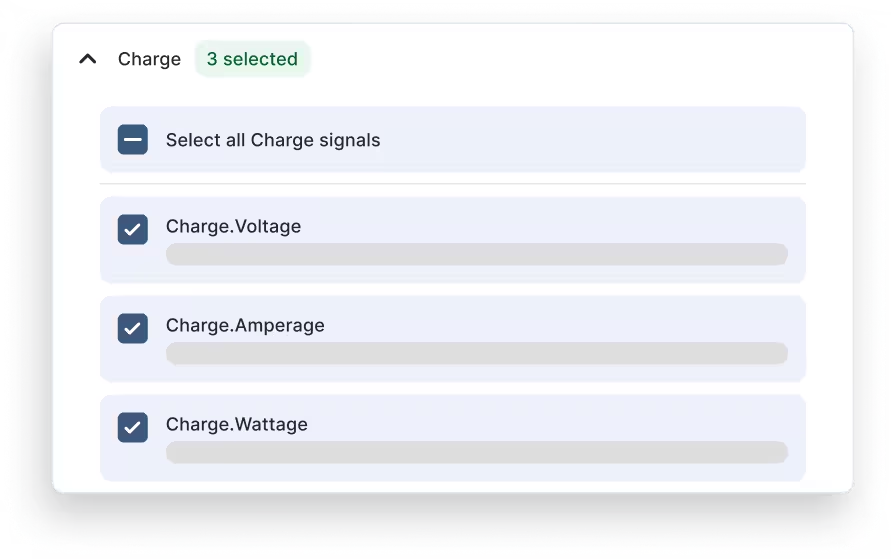
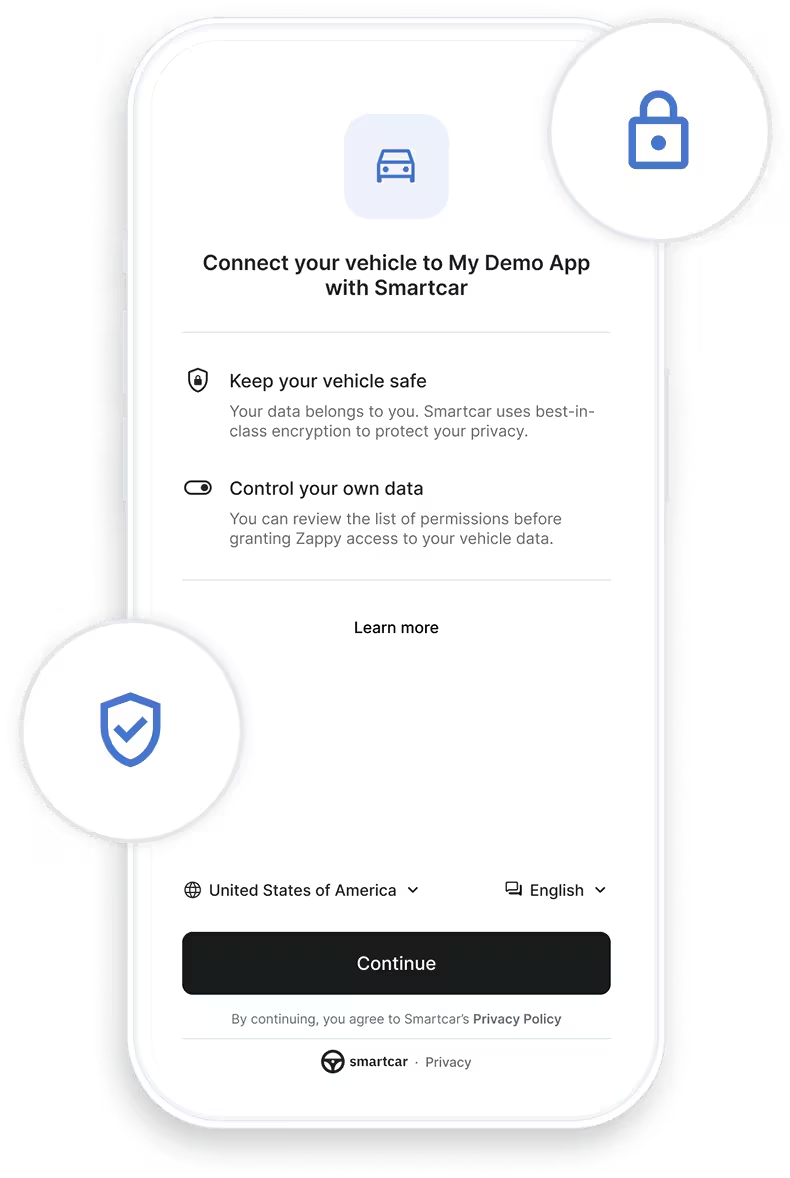
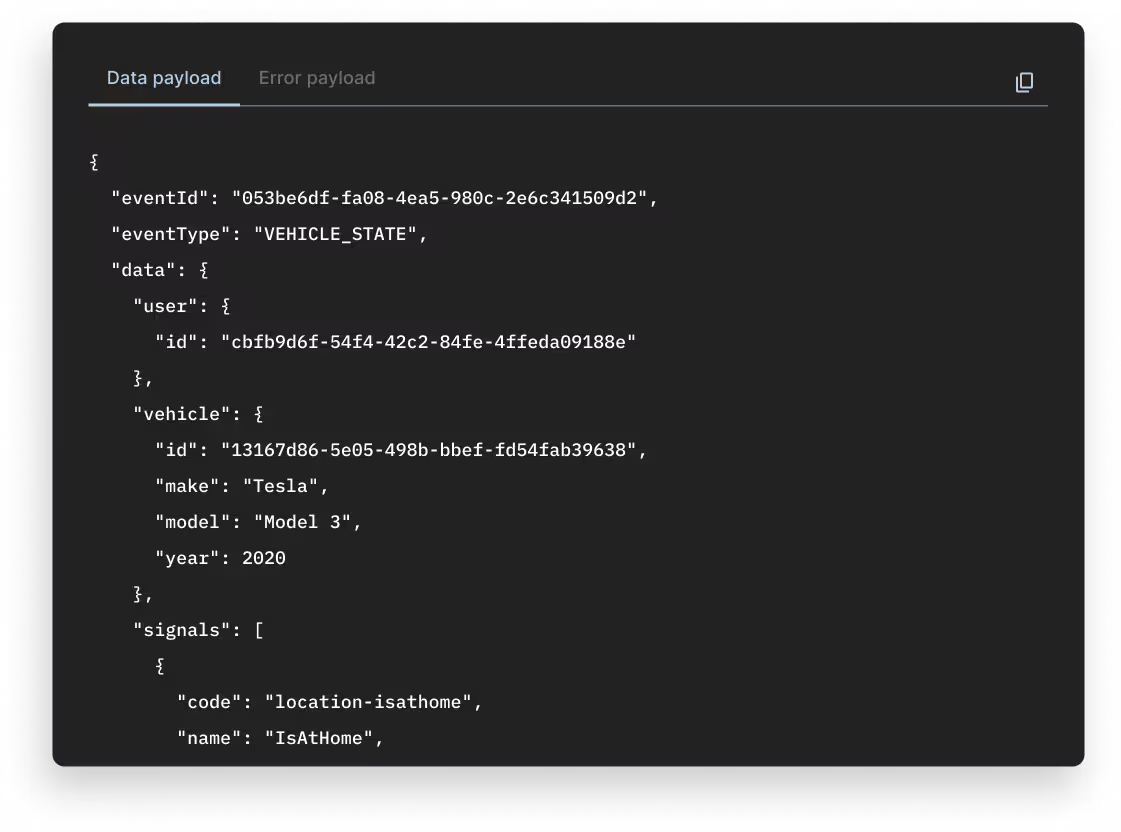


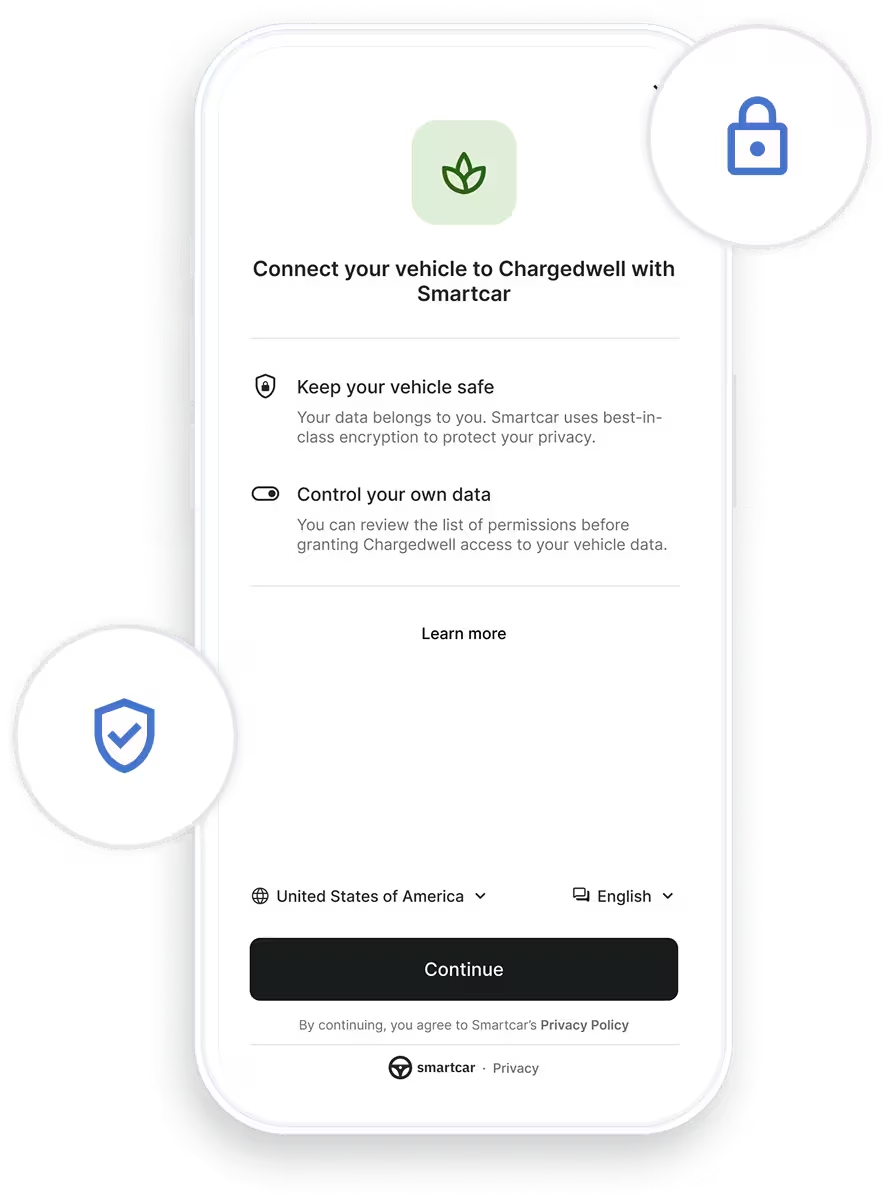


Cómo funciona
Seleccione
Elija entre una amplia gama de señales de vehículos relevantes para las necesidades de su empresa.
Conectar
Los clientes otorgan a su aplicación acceso a los datos de sus vehículos a través de Smartcar Connect.
Recibir
Los webhooks envían los datos directamente a su sistema tan pronto como estén disponibles.
Escala
Amplíe fácilmente a más marcas, modelos y casos de uso sin hardware ni configuración adicionales.
XX
XX
XX
XX
Diseñado para los productos de movilidad del mañana
Gestión de vehículos eléctricos y energía
Controle el nivel de la batería, el estado de carga y la autonomía en tiempo real para optimizar el uso y reducir la pérdida de clientes.
Seguro y riesgo
Acceda al kilometraje verificado, los datos de viaje y el estado del vehículo para impulsar la UBI o la inteligencia de reclamos.
Mantenimiento y estado del vehículo
Recibe notificaciones sobre los DTC, las advertencias sobre la presión de los neumáticos y mucho más: comunícate con tus conductores de manera proactiva.
Flota y logística
Controle el odómetro, la ubicación y el combustible en flotas enteras sin hardware personalizado.
Entrega de datos que se adapta a su pila
Los webhooks son lo primero
Transmita los datos del vehículo al instante, sin sondeos ni demoras.
Configuración de señal
Solicita solo los datos del vehículo que necesita tu aplicación, con total transparencia y consentimiento del usuario.
Gestión de vehículos
Gestiona las conexiones de tu vehículo, los registros de actividad y mucho más directamente desde el Smartcar Dashboard.
Preparado para la empresa
Permisos de SSO, RBAC y equipos granulares para una colaboración segura.
Alcance global
Controle la disponibilidad por región y marca OEM en más de 30 países.
Una integración entre más de 40 marcas
Confianza en cada punto de contacto
Estamos diseñados para la confianza de los usuarios y la seguridad de nivel empresarial. Nuestro flujo de consentimiento de Connect se basa en el protocolo OAuth2, y los clientes siempre saben lo que comparten y por qué.
- Flujo de autorización de OAuth2
- Enlaces personalizables sobre marcas y políticas
- Ámbitos de permisos transparentes
- No hay credenciales de usuario almacenadas






.png)







